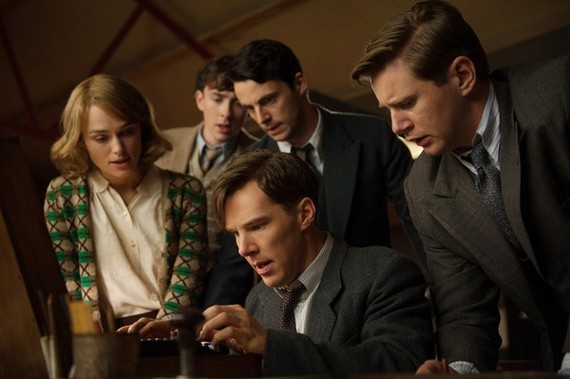As inevitably must happen, my stay at the Toronto International Film Festival comes to an end. There's an almost ceremonial feeling to the moment when I remove the lanyard with my press credential from my neck for the last time and head for home.
It is, of course, impossible to characterize the success or failure of all the films at TIFF this year (or any year), if only because you can only see so many films in one day. I tend to average four or five films a day in a good year, with one day (and occasionally two) where I see as many as six. Even if I went for the entire 10 days and watched 10 movies a day, I'd still be able to see fewer than half of the films at the festival. And the last one you missed -- well, it might have been the best.
But I saw enough at this year's TIFF to think that, while I just may have seen the best film of the year at this festival, that also may not necessarily be so.
Certainly, the first film I saw Thursday before I left town will be a major contender. Get used to hearing the title The Imitation Game because, between the filmmaking of Morten Tyldum and the acting of Benedict Cumberbatch, this is the film they'll be talking about at the end of the year.
Cumberbatch plays Alan Turing, the man credited with breaking the Nazis' impenetrable Enigma code during World War II and shortening the war. This film examines his selection to be part of a super-secret team of cryptologists put together by the British to figure out how to decipher an unbreakable code.
Turing's solution is to build a machine -- an early gloss on a computer -- to counter the Enigma machine, which changes its encryption daily. But he has to struggle against military stubbornness and his own lack of social skills (he tends to put people off by being both blunt and literal) to reach the solution.
The film also examines Turing's own indecipherable life: hiding the fact that he's a gay man at a time when homosexuality had been criminalized by the British (who only decriminalized it in 1967, still sooner than a lot of the American South). It is a subplot and a subtext, enriching the drama without dominating it. Cumberbatch, as if he hadn't already made himself a star, vaults into the contemporary top rank of actors with this exceptionally human performance as a man who sometimes wonders if he's really a machine.
This review continues on my website.

